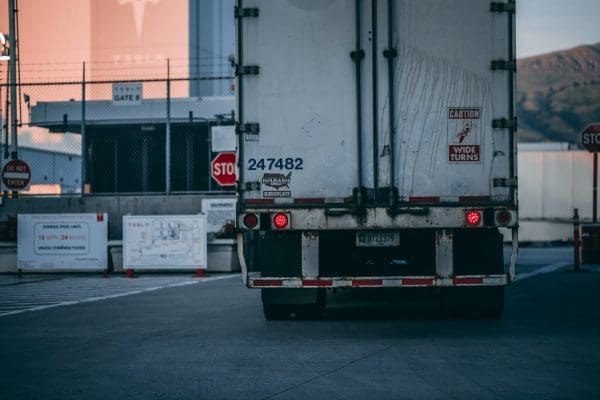The Process of Proving Truck Accident Liability

Entangled in a web of rules, regulations, and legal jargon, you must show negligence, establish cause, and provide evidence of damage. It’s a labyrinth of complex procedures, expert testimonies, and deciphering insurance policies. Trust us, we know.
And what about those parked truck accidents? They’re a whole different story.
You’ll find that it’s rooted in the legal principle of negligence, demanding solid proof of duty of care, breach, causation, and damages. This burden of proof falls on you, the plaintiff, and it’s no small task. You’ll need to convincingly demonstrate that the truck driver, or perhaps the trucking company, failed in their duty of care, leading to the accident.
The legal process can be complex and demanding. It’s not just about proving a breach of duty. It would be best if you also established causation – that their negligence directly led to the accident. And you’ll need to quantify the damages you’ve suffered.
Documentation plays a crucial role in this process. Medical records, photos of the scene, and police reports all form part of your evidence. But you’ll also need expert witnesses, from accident reconstructionists to maintenance specialists, to break down the complex evidence for the jury.
Understanding truck accident liability is about navigating a challenging legal landscape with patience and determination. The burden of proof is heavy, but with the right preparation and evidence, you can make your case.
Establishing Truck Driver’s Negligence
Building on your understanding of truck accident liability, it’s important to focus now on establishing a truck driver’s negligence. You’ll need to meet the burden of proof to successfully establish this negligence, which typically involves demonstrating that the driver breached their duty of care and that this breach directly resulted in harm.
Here are key steps in proving a truck driver’s negligence:
- Prove a breach of duty: Show that the driver’s actions weren’t those of a reasonable, prudent person in the same situation.
- Show causation: You must prove a direct link between the driver’s negligence and your injuries.
- Quantify damages: Document your injuries and other losses to demonstrate the extent of the harm you’ve suffered.
- Use expert witnesses: These specialists can support your case with professional opinions.
- Consult a seasoned truck accident attorney: They can help navigate insurance coverage issues and strengthen your case.
Role of Evidence in Truck Accident Liability Proving
Evidence and documentation play critical roles in proving liability in truck accidents. Witness statements, photographs, videos, and expert testimony are all types of evidence that can be used to prove truck accident liability.
Witness statements provide firsthand accounts of events, while photographs and videos visually represent the accident scene. Expert testimony, such as that from accident reconstructionists, can provide professional opinions that strengthen a case by analyzing the evidence to demonstrate the truck driver’s negligence or misconduct.
However, collecting and preserving evidence can be challenging. It is crucial to collect evidence promptly before it is lost or destroyed. Weather conditions can compromise a crash scene, while witnesses’ recollections can become less reliable. Properly preserving evidence is equally important so that it remains viable in court.
Ultimately, the evidence collected and its handling can make or break a case. Understanding the role of evidence in proving truck accident liability and overcoming its associated challenges is crucial.
Importance of Expert Witnesses

While building your case, never underestimate the importance of expert witnesses in determining liability in trucking accidents. These professionals bring in-depth knowledge and experience that can tip the scales in your favor. Their qualifications are crucial, as the weight of their opinion can significantly influence the court’s decision.
Expert witnesses analyze various types of evidence, from skid marks on the road to the truck’s black box data. They meticulously dissect every detail, providing an unbiased interpretation of the facts. Their testimony can clarify complex issues, making them understandable for the jury and highlighting the negligence or misconduct of the liable party.
Consider the following:
- Due to their qualifications, expert witnesses can provide authoritative and credible opinions.
- They analyze different types of evidence, providing a comprehensive view of the accident.
- Their testimony in court can strengthen your case significantly.
- They can help identify negligence or misconduct that may not be obvious.
- Their expertise can explain complex issues to the jury, aiding their understanding of the case.
Vicarious Liability Explained
When it comes to trucking crashes, you’ll find vicarious liability can complicate things, as it’s the legal principle that holds employers, such as trucking companies, accountable for the actions of their employees while on the job. This means the company can still be held responsible even when a driver is negligent. Vicarious liability cases, therefore, add another layer to the already complex process of determining truck accident liability.
Now, you might wonder what defines an employer’s responsibility. It hinges on whether the driver acted within the course and scope of employment. If they were, and an accident happens, the trucking company may be held liable. This is because the law assumes employers control employees’ actions during work hours.
However, it’s not always cut and dry. Each case has unique circumstances, and liability isn’t guaranteed to the trucking company. Establishing vicarious liability requires demonstrating the relationship between the employer and employee and the employee’s actions leading to the accident.
Comparative Negligence in Truck Accidents
Let’s examine the concept of comparative negligence in truck accidents. This factor involves assessing the fault of all parties involved to determine their respective percentages of liability. This concept is vital in fault determination and plays a significant role in the outcome of a case.
Here are some key points to grasp:
- Comparative negligence considers everyone’s actions during the accident. It’s not just about the truck driver but also your conduct.
- Comparative negligence can affect your compensation. If you’re partially at fault, you may reduce your monetary recovery.
- The rules of comparative negligence vary by jurisdiction. Therefore, it’s crucial to understand the specific laws in the area where the accident occurred.
- Comparative negligence often intertwines with contributory negligence. Unlike comparative negligence, contributory negligence can hinder recovery if you’re slightly at fault.
- Handling comparative negligence issues can be challenging. It’s often wise to seek the help of a truck accident attorney to navigate these complex waters.
Violations of Federal Safety Regulations

Federal safety regulations are key in truck accident cases, as violations of these rules often provide concrete evidence of liability. Common violations in trucking accidents include unsafe or impaired driving and non-compliance with hours of service requirements.
Truck accident attorneys use evidence of violations, such as inaccurate driver logs or failure to maintain safe vehicle conditions, to establish liability. It’s important to understand that Federal Motor Carrier Safety Regulations violations can result in serious accidents, leading to injuries and damages. This provides grounds for legal action.
The impact of federal safety regulations on truck accident liability can’t be overstated. Proving violations of these regulations is crucial in holding trucking companies and drivers accountable for their actions and the resulting consequences. Additionally, understanding and documenting violations of federal safety regulations is essential in building a strong case.
Employer’s Liability in Trucking Crashes
An often overlooked aspect of trucking accidents is the employer’s liability, which can hold companies accountable for their drivers’ actions under certain circumstances. You have the burden of proof to establish the employer-employee relationship and show that the driver’s actions occurred within the scope of employment.
Here are five key points to consider:
- The doctrine of respondeat superior or vicarious liability holds employers accountable for their drivers’ actions during their scope of employment.
- Evidence such as driver logs, employment records, and communications can be vital in proving an employer’s liability.
- It’s crucial to consider the employer’s liability alongside the driver’s to hold all responsible parties accountable.
- Employer’s defenses often revolve around proving that the driver acted outside the scope of their employment or was an independent contractor.
- Proving truck accident liability can involve expert witnesses like accident reconstructionists and maintenance specialists.
Statute of Limitations Considerations
While holding employers and drivers accountable for their actions is crucial, you must also be aware of the Statute of Limitations that governs the timeframe for filing legal actions after a truck accident. This legal deadline is significant in proving fault and establishing liability.
In many jurisdictions, you’ve got a restricted period, often two years from the date of the accident, to initiate a personal injury claim. The clock starts ticking from the moment the accident occurs. If you don’t file your lawsuit within this timeframe, you risk losing your right to pursue any legal action. Therefore, it’s not just about proving fault; you must also act promptly.
If you miss this window due to procrastination or lack of knowledge, even the most compelling evidence of negligence won’t help your case. So, while proving truck accident liability is complex, always be mindful of the Statute of Limitations. It’s a crucial aspect of the legal process that underscores the importance of timely action after a trucking crash.
Consultation With Truck Accident Attorney
A consultation with a truck accident attorney can be a game-changer in obtaining vital evidence such as security camera footage and other crucial information following a crash. The benefits of hiring a truck accident attorney are manifold. They can help you navigate the complex legal landscape, ensuring you take the right steps after a truck accident.
Here are a few advantages:
- They can quickly secure key evidence before it’s lost or destroyed.
- They can identify negligence or violations that contributed to the accident.
- An attorney familiar with truck accidents can help prove that the driver breached their duty of care.
- They’ve access to a network of expert witnesses who can bolster your case.
- They can adequately document and present your medical records to prove damages.
At Calandro Law, we specialize in handling the intricacies of trucking accidents and in a broad spectrum of legal areas, including personal injury, nursing home negligence, and more.
Our profound commitment to serving clients in Hillsborough County and across Florida ensures that every case is approached with the utmost attention to detail and dedication to securing the justice and compensation our clients deserve. Whether you’ve suffered due to a vehicle accident or suspect nursing home negligence, we are here to help. Contact us to schedule your consultation.
Our team is ready to provide the support and guidance you need. Don’t let the complexity of the legal process intimidate you; let Calandro Law be your ally in seeking the justice you deserve.



